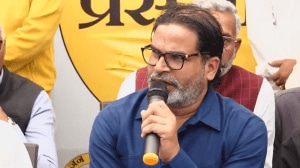DuPont finally bites outsourcing bullet, to set up India centre
In a major booster shot for high-end outsourcing to India, the Indian arm of the world’s largest chemicals company—E.I. du Pont de Nemours and Co—will set up a Knowledge Centre for basic R&D and product application development in the country.

In a major booster shot for high-end outsourcing to India, the Indian arm of the world’s largest chemicals company—E.I. du Pont de Nemours and Co—will set up a Knowledge Centre for basic R&D and product application development in the country.
To be located in Andhra Pradesh, DuPont India says the centre will be formalised in a couple of months, and will go onstream by late 2007. While the hiring has already begun, DuPont India President and CEO Balvinder Singh Kalsi says the headcount target is 400 people over the next three years as well as investments to the tune of Rs 100 crore.
The company will also look at putting core backend work—its infotech systems, patent drafting, research on intellectual property, and even perhaps engineering services—as part of the facility’s mandate. ‘‘The over-riding anchor will be agricultural research towards bio-based materials,’’ says Kalsi, who took charge at DuPont late last year.
It has taken DuPont some time to make up its mind to outsource to India. A couple of years ago, Charles ‘Chad’ Holiday, CEO of the $26.6-billion giant with interests in speciality fibres, chemical polymers, and increasingly, agricultural and biotech products, has said that India could work for non-core biotech outsourcing.
The decision to finally take this forward for a company with an annual research budget of $1.3 billion is indeed a big catch for the India story. While the final verdict is not yet out on the ‘greening’ of DuPont, there’s no denying the chemicals giant is walking the talk in the search for bio-based substances, from corn to sugarcane, to replace oil and gas as the building blocks for chemicals.
‘‘We have been fighting for more airspace vis-a-vis China. Our pitch has been that India just can’t be seen as a revenue base, it’s a place you can do R&D, source human talent, try pilot projects,’’ said Kalsi, whose long association with agricultural products will mirror in the center’s core focus.
So what changed the outlook? India’s capability in human talent, research, and cost is now a relatively old story. Kalsi says DuPont bought into India thanks to robust manufacturing growth over the past couple of years.
With a primary focus on chemicals and seeds, DuPont India’s operations have been growing at a 25% clip to $300 million (Rs 1,350 crore). After the global acquisition of Pioneer Hi-bred in 1998, seeds is a focus area. Kalsi feels the potential for hybrid seeds is immense in the Indian market, and research in biotech traits for rice—salinity, weeding—could lead to dramatic improvements in productivity. Ditto for sugarcane, cotton, or corn.
Looking ahead, Kalsi sees a $1 billion revenue target for DuPont India, on the back of future growth in materials for electronics industry, polymers, refrigerants, and bio-based materials.
Finally, on the issue of DuPont product Teflon containing perfluorooctanoic acid, or PFOA, which has been linked to cancer and strokes, Kalsi said the debate on this was still wide open and saw no impact on India operations.
Warning for Agri Inc
With a host of top Indian corporates marking ambitious plans for the agriculture
sector, DuPont is adding to the chorus that says it’s early days yet. Asked if corporates would make good farmers, Kalsi said, ‘‘If we were to step into farming or direct procurement, it’ll be very difficult.’’ In sum, providing linkages is fine, as is bringing in best practices, but the model has to be efficient and engage people. ‘‘Lots of people have announced plans, and they are trying out small pilots, the picture will improve over the next two-three years,’’
Kalsi said. If he sees the deregulation of the mandi system as the biggest stumbling block, Kalsi feels the intermediary’s role will change.





- 01
- 02
- 03
- 04
- 05


























